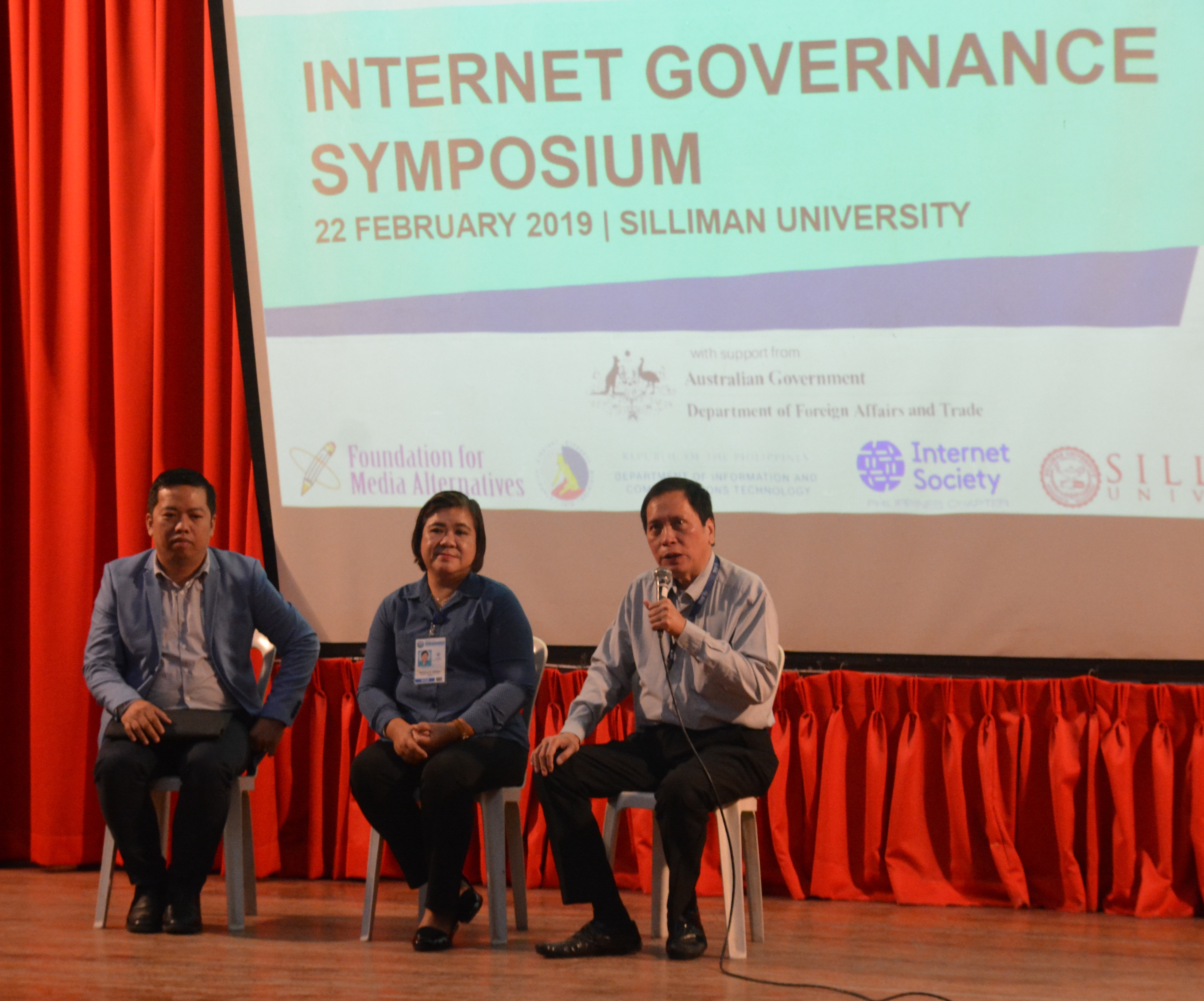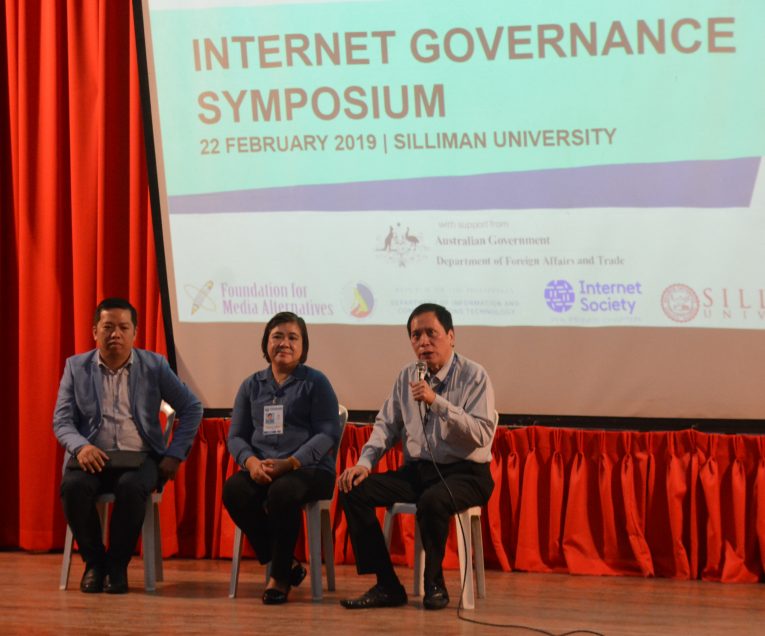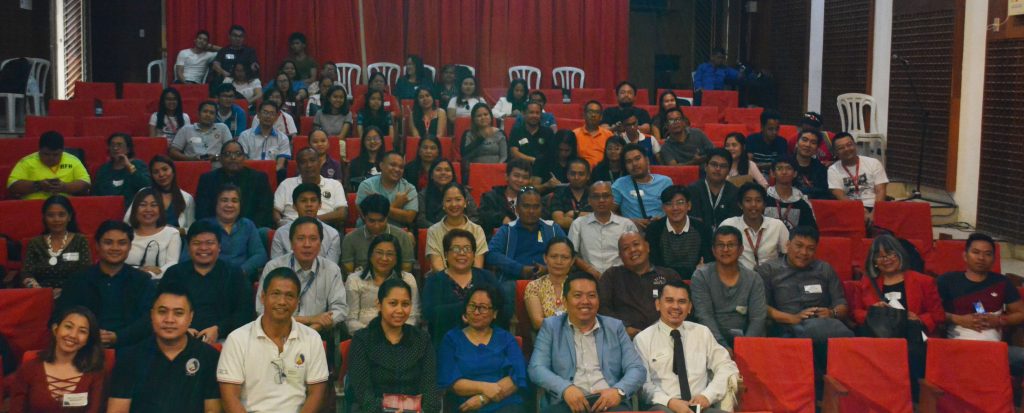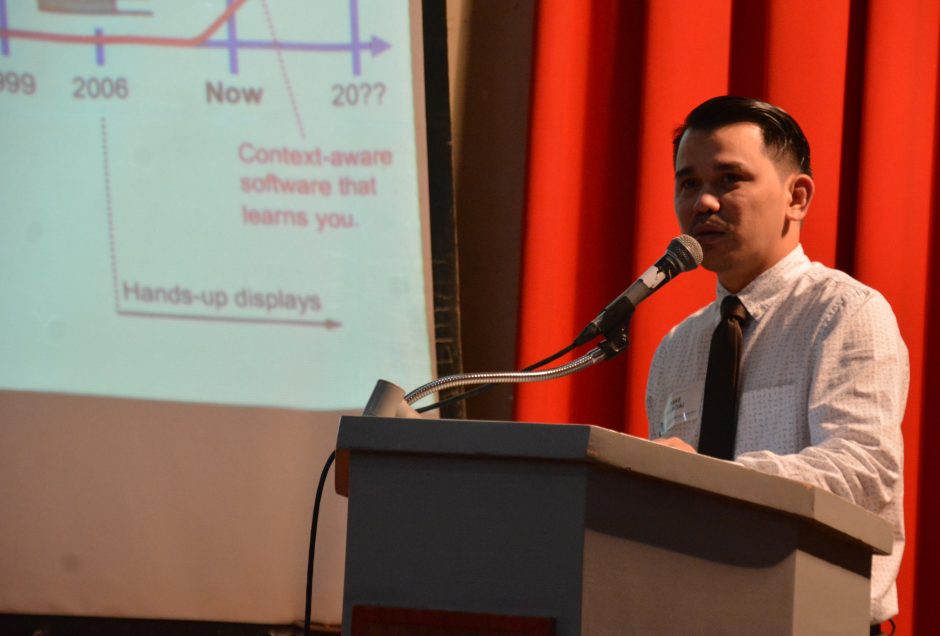
SU hosts symposium on internet governance

(L-R) Michael Canares, senior research manager for Digital Citizenship of the Web Foundation, who lectured on open data; Rosela Abiera, Division Education Program supervisor of the Department of Education Region VII, who lectured on the adoption of ICTs in Philippine educational institutions; and Winthrop Yu, secretary of ISOC-PH, who lectured on internet governance.
Silliman University (SU) hosted the Visayas leg of the Internet Governance Symposium Feb. 22 wherein experts and internet stakeholders discussed issues concerning the internet and internet governance.
The whole-day event started with key lectures in the morning session at the Audio-Visual Theater (AVT) I. For the afternoon session, simultaneous lectures and forums about various topics including cybersecurity, artificial intelligence, the digital gender gap, internet trends, parenting and disability in the digital age, among others, were held at the AVT I, Knowledge Development Center, and American Studies Resource Center at the SU Main Library.
The symposium was organized by the Department of Information and Communications Technology (DICT), Foundation for Media Alternatives (FMA), the Internet Society – Philippines Chapter (ISOC-PH), and SU, with support from the Australian Government’s Department of Foreign Affairs and Trade.
The symposium is an effort to bring the discussion on internet governance and other internet-related issues and concerns to regions outside Metro Manila, said ISOC-PH Secretary Winthrop Yu.
“(The DICT) is going across the country because they want input and proposals and ideas from the ICT users themselves, the people who use and benefit from ICT,” said Yu.
Maria Teresa Magno-Garcia, DICT director for ICT Planning, Policy, and Standards Bureau, said that the output of the symposiums will be used as basis for the DICT’s development of “more responsive” ICT plans, policies, standards, programs, and projects.
“It is essential for us to have the knowledge as to how the internet is managed…this significant resource [exerts] a direct impact on our economic and social opportunities,” Magno-Garcia emphasized.
Meanwhile, in his lecture on internet governance, ISOC-PH Secretary Yu said that everyone is practicality a stakeholder in information and communications technology (ICT) in the Philippines, hence there is a need for it to be discussed among various sectors through a multi-stakeholder approach.
“We have to look at the internet discussions as something not solely focused on technical matters. The internet has become part of our daily lives that it impacts many of us in many different ways,” said Yu.
The multi-stakeholder approach, he added, recognizes the internet’s “bottom-up” nature.

Speakers and attendees of the morning session
“No one person runs the internet…various sectors [and] groups [contribute] what they can with their various fields of expertise,” he explained.
Liza Garcia, FMA executive director, said the symposium gathered local representatives from the technical community, the academe, the youth, government and civil society, and marginalized sectors such as women and persons with disabilities (PWDs) as speakers, panelists, and audience.
“The internet governance process should be inclusive…All of us should be involved whether we are developers, creators, or users…A truly inclusive dialogue is necessary to maximize internet opportunities, and address risks and challenges in a way that benefits everyone including the most marginalized,” Garcia said.
Yu said the series of internet governance symposiums are like localized versions of the Internet Governance Forum – an annual, international event.

Dr. Dave Marcial, SU College of Computer Studies dean, on “Integrating Augmented Reality and Gamification in Silliman University”


